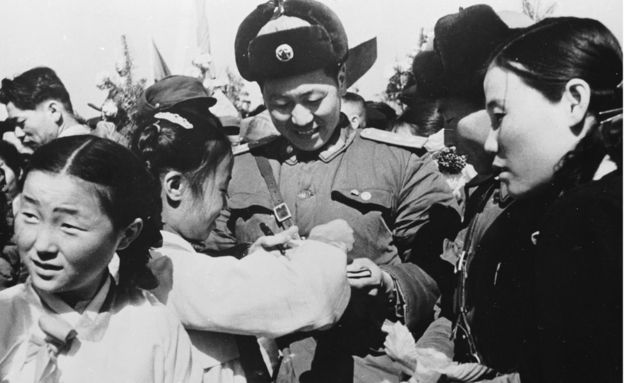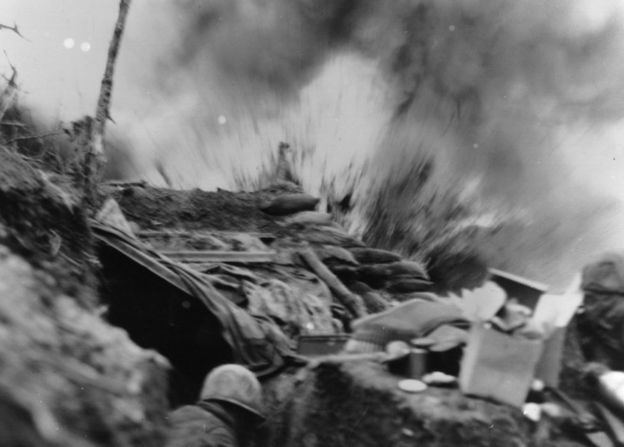- 31 March 2016
- Asia
More than 60 years after the end of the Korean war, the remains of 36 Chinese soldiers who died fighting against South Korea are being returned home.
The remains were excavated from graves in Paju, near the North Korean border, last year.
It is the third repatriation since a 2014 agreement between the two countries, as relations improve.
The war drew in China and the Soviet Union on the North's side, and UN forces, led by the US, on the South's.
A ceremony attended by South Korean and Chinese defence officials was held at Seoul's Incheon airport before the remains were flown to the north-eastern Chinese city of Shenyang, where China has a cemetery for its war dead.
 Getty Images
Getty Images
The remains of Chinese and North Korean soldiers have continued to be discovered over the last six decades, where they were killed, often in remote woods in bleak by-now-overgrown dug-outs, the BBC's Stephen Evans in Seoul says.
Scientists work to identify them by analysing uniforms or ammunition, but often fail to put a name to the fallen soldier, our correspondent adds.
The 505 sets of remains flown back since the 2014 deal, have all been sent ahead of the annual Chinese Qingming, or tomb-sweeping, festival, which this year falls on 4 April.
 Getty Images
Getty Images
Up to 1.5 million communist forces are thought to have died in the 1950-1953 Korean War.
About 30,000 US, 400,000 South Korean, and 1,000 UK troops, among others, also died, as well as at least two million civilian.
Tens of thousands more are listed as missing and both Koreas still conduct searches for soldiers' remains, periodically returning the foreign soldier's remains.
The remains of nearly 800 North Korean soldiers, however, have not been returned, such is the animosity between Seoul and Pyongyang, our correspondent says.
The Korean War ended with an armistice agreement. A formal peace treaty has never been signed and the two Koreas remain technically at war.

No comments:
Post a Comment